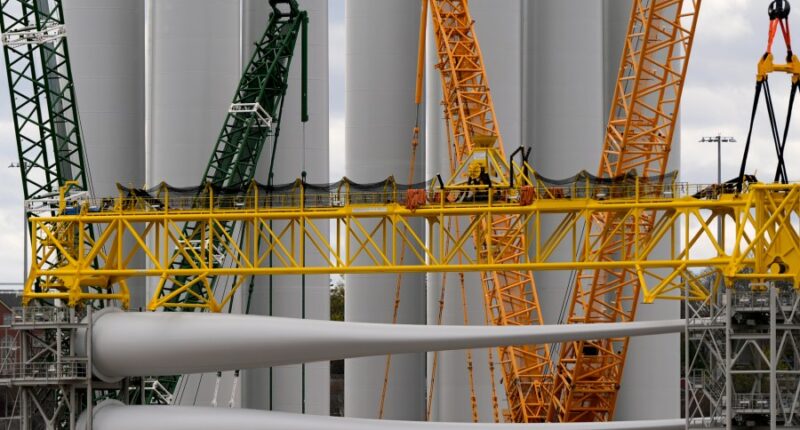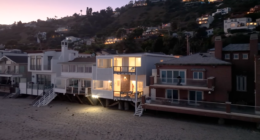Share this @internewscast.com

A federal judge in Washington, D.C., decided on Monday that the almost finished offshore wind project can proceed after previously being halted by the administration. This ruling is a blow to President Donald Trump’s efforts to limit the emerging industry.
Construction on the Revolution Wind project, intended to serve Rhode Island and Connecticut, was stopped on August 22 when the Bureau of Ocean Energy Management (BOEM) issued a stop-work order over unspecified national security concerns. Both the project’s developers and the two states subsequently took legal action in federal courts.
Danish energy company Orsted, alongside its joint venture partner Skyborn Renewables, requested a preliminary injunction in the U.S. District Court to continue progress on the project.
During a hearing on Monday, Judge Royce Lamberth considered the project’s dependency on federal approval, noting that delays are accruing costs of $2.3 million daily. He warned that failure to meet deadlines could jeopardize the entire project. The specialized vessel required for completion would not be available after December until 2028. The wind farm is 80% complete, with over 1,000 workers engaged.
Lamberth stated there was a clear case of irreparable harm to the plaintiffs and granted the preliminary injunction, also deeming it in the public interest.
The Interior Department has abstained from commenting on active litigation. In a recent court filing, the administration contended that although BOEM approved the wind farm, it required the developer to address Defense Department concerns. The Interior Department claims it has not yet received confirmation that these considerations have been satisfied.
Orsted said Monday that construction will resume as soon as possible, and it will continue to seek to work collaboratively with the administration.
Nancy Pyne of the Sierra Club said the court ruling “reaffirms that Donald Trump and his administration’s attacks on clean energy are not only reckless and harmful to our communities, but they are also illegal.” Trump is trying to “kneecap” renewable energy “in favor of dirty and expensive fossil fuels,” she said.
On the campaign trail, Trump vowed to end the offshore wind industry as soon as he returned to the White House. He wants to boost production of fossil fuels such as oil, natural gas and coal, which emit greenhouse gases that cause climate change, in order for the U.S. to have the lowest-cost energy and electricity of any nation in the world, he says.
His administration has stopped construction on major offshore wind farms, revoked wind energy permits and paused permitting, canceled plans to use large areas of federal waters for new offshore wind development and stopped $679 million in federal funding for a dozen offshore wind projects.
Last week, the administration moved to block a separate Massachusetts offshore wind farm. That was just days after the Interior Department asked a federal judge in Baltimore to cancel previous approval to build an offshore wind project in Maryland.
Revolution Wind is supposed to be Rhode Island’s and Connecticut’s first large offshore wind farm, capable of supplying power to more than 350,000 homes, about 2.5% of the region’s electricity needs.
Connecticut Attorney General William Tong and Rhode Island Attorney General Peter Neronha, who are both Democrats, called the judge’s ruling a major win for workers and families, who need the project to stay on track so it can start to drive down unaffordable energy bills.
Connecticut Rep. Joe Courtney, a Democrat, said a multibillion-dollar project that is 80% complete and was fully permitted with input by the Pentagon is not a national security problem. The Interior Department “should take the hint and let the thousands of construction workers finish the job,” he said.
Orsted began construction in 2024 about 15 miles (24 kilometers) south of the Rhode Island coast. It says in its complaint that about $5 billion has been spent or committed, and it expects more than $1 billion in costs if the project is canceled. Rhode Island is already home to one offshore wind farm, the five-turbine Block Island Wind Farm.
___
McDermott reported from Providence, Rhode Island. AP Writer Susan Haigh in Hartford, Connecticut, contributed to this report.
___
The Associated Press’ climate and environmental coverage receives financial support from multiple private foundations. AP is solely responsible for all content. Find AP’s standards for working with philanthropies, a list of supporters and funded coverage areas at AP.org.

















